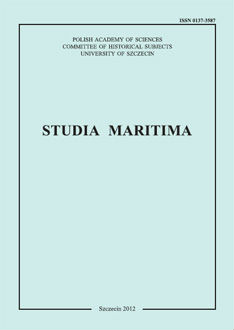The French Conquest of Algiers
The French Conquest of Algiers
Author(s): Zygmunt Stefan ZalewskiSubject(s): History
Published by: Wydawnictwo Naukowe Uniwersytetu Szczecińskiego
Keywords: Algeria; France; Ottoman Empire; Barbary piracy; Lord Palmerston; "independence and integrity" doctrine; fly-whisk incident
Summary/Abstract: The article is an attempt to present and discuss - based on the struggle against Barbary pirates and corsairs waged in the Mediterranean Sea - dynamic and complex political and economic processes as well as diplomatic efforts that contributed to the French conquest of Algiers in 1830. The first three decades of the 19th century were among the most turbulent periods in the history of the French nation. Defeated and humiliated by the enemy coalition in 1815, France did not give up on her "imperial dream", this time trying to make it come true in a non-distant Maghreb. The way to achieve this goal was, however, quite bumpy. At that time, the western part of the Mediterranean Sea was an arena of competition, mainly between the United States and Great Britain. After all, this turned out to be very favourable to France. Wishing to introduce an extra element into the game, eliminate rivals for overseas supremacy, as well as win Russia — that was gradually strengthening her influence in the eastern part of the Mediterranean Sea - as an ally, at the end of the 1820's Great Britain became an advocate of her neighbour across the English Channel. Gradually regaining her economic potential and international importance, France reached for Algiers by entering the armed conflict. However, the French stronghold in Maghreb would soon pose a major challenge to the British colonialism in Africa. Expressing their major concern over the security of so-called "imperial route" leading via the Mediterranean sea, British politicians and statesmen adopted a new political stance toward the declining Ottoman Empire. Owing to their "independence and integrity" doctrine (formulated in 1830's), the rich Ottoman heritage managed to "survive" by the outbreak of World War II.
Journal: Studia Maritima
- Issue Year: 27/2014
- Issue No: 1
- Page Range: 41-59
- Page Count: 1
- Language: English

